In 1942, University of California, Davis (UCD) biologist, Jack Hanna recognized the need for breeding tomato varieties that ripen uniformly and withstand the rigors of mechanical harvesting. In 1949, UCD agricultural engineer Coby Lorenzen and Hanna began developing a mechanical tomato harvester. Parallel efforts by others, notably those started in 1957 by agricultural engineer Bill Stout and horticulturist Stan Ries of Michigan State University, eventually resulted in several different harvesting mechanisms. In the late 1950s, UCD agricultural engineer Steven J.
1949


Developed by Rohm and Haas in the 1940s, water-based acrylic emulsion technology filled a need for easy-to-use household paints for a growing suburban population in the United States following World War II. This aqueous technology required less preparation to use, was easier to clean up, had less odor, and performed better than or equal to paints made with solvents. It was also a leap forward in acrylic chemistry.
Era_date_from:
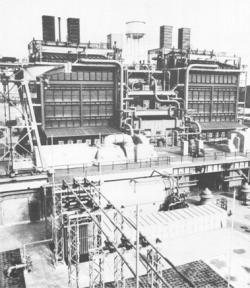
On April 21, 1949, a completely outdoor turbine-generator was placed into commercial operation at the Greens Bayou electric power plant--the first fully outdoor unit to operate in the United States. The demand for unprecedented quantities of electricity after World War II pressed utilities to provide addition power quickly. The outdoor design, unlike the traditional large turbine hall, resulted in significant reductions in the cost per kilowatt to build the plant.
The Garfield Thomas Water Tunnel is a unique experimental facility for hydrodynamic research and testing. The 48-inch (1.2-meter) diameter water tunnel enables the research staff to conduct basic and applied investigations in the fields of cavitation, hydroacoustics, turbulence, transition, hydrodynamic drag, and hydraulic and subsonic turbomachinery. Instrumentation and testing methods have been developed to study noise, vibration, vehicle dynamics, and the interaction between the propulsor and vehicle body.
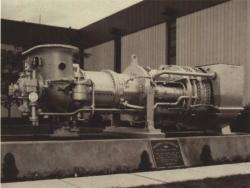
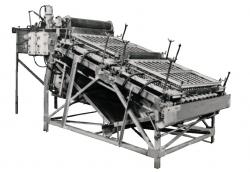
Innovations
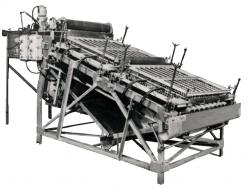
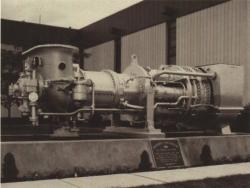
The Garfield Thomas Water Tunnel is a unique experimental facility for hydrodynamic research and testing. The 48-inch (1.2-meter) diameter water tunnel enables the research staff to conduct basic and applied investigations in the fields of cavitation, hydroacoustics, turbulence, transition,…
Read More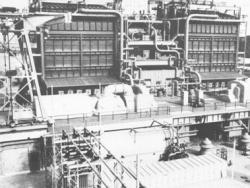
On April 21, 1949, a completely outdoor turbine-generator was placed into commercial operation at the Greens Bayou electric power plant--the first fully outdoor unit to operate in the United States. The demand for unprecedented quantities of electricity after World War II pressed utilities to…
Read More
Developed by Rohm and Haas in the 1940s, water-based acrylic emulsion technology filled a need for easy-to-use household paints for a growing suburban population in the United States following World War II. This aqueous technology required less preparation to use, was easier to clean up, had…
Read More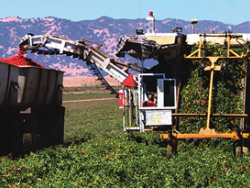
In 1942, University of California, Davis (UCD) biologist, Jack Hanna recognized the need for breeding tomato varieties that ripen uniformly and withstand the rigors of mechanical harvesting. In 1949, UCD agricultural engineer Coby Lorenzen and Hanna began developing a mechanical tomato…
Read More

